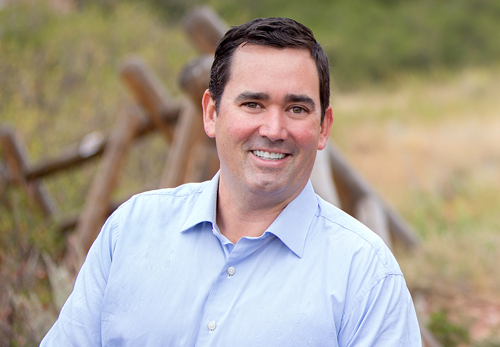With four generations of Colorado-born family history and eight years as State Treasurer, Walker Stapleton is hoping to become Colorado’s next Republican Governor. After a slightly tumultuous primary season, in which he originally planned to get onto the ballot through petition, Stapleton won the Republican primaries with 49.35 percent of the vote and the potential to become the second Republican governor Colorado has had in the last 45 years.
On his official campaign website, Stapleton highlights nine different issues, broken down and explained below, that are of top priority to him.
Stapleton has three primary goals for health care that he wants to execute as governor: emphasize preventive and primary care with a focus on mental health integration, emphasize outcomes-based care with a more efficient administrative process and give Coloradans a wider variety of coverage options.
Walker aims to “implement a more comprehensive approach to mental health services and advocate incorporating these services in employee-sponsored and exchange plans.” Additionally, he plans to build on the Colorado State Innovation Model for Medicaid System started by Governor John Hickenlooper’s administration. This program allows Coloradans to access “behavioral and physical health in primary care settings” with alternative payment models, such as Medicaid, of which 16 percent of the Colorado population relies on.
Due to the importance of Medicaid for Colorado families, Stapleton’s second goal is directed toward more efficient use of Medicaid, including simpler health care billing systems, “so that doctors can spend more time being doctors.” Citing a Medicaid fraud prevention initiative enacted in Illinois, Stapleton wants to conduct a more comprehensive method of monitoring the administration of Medicaid programs to reduce waste, abuse and fraud in Colorado.
Lastly, Stapleton intends to seek a 1332 Waiver that, in compliance with the Affordable Care Act (ACA), permits a state to “pursue innovative strategies for providing their residents with access to high quality, affordable health insurance.”
Stapleton states that sanctuary cities, referring to cities in which local policies limit cooperation with federal immigration enforcement, are “a direct threat to public safety and rule of law.” As governor, Stapleton would reverse actions taken by the city of Denver to prevent aiding immigration enforcement, such as the (currently) forbidden practice of sharing personal information for the purposes of immigration enforcement or asking any person about their citizenship status.
Addressing the Public Employee’s Retirement Association (PERA) reform that he has led as Treasurer, Stapleton intends to fight for fiscal restraint, protecting the taxpayer’s interests and making the program more efficient.
Stapleton states, “We must allow the money to follow the students, not the other way around.” His primary initiatives for education include moving money away from the administration and toward the classroom and teachers, instilling a “back to school shopping” tax holiday, allowing parents to open a tax-free education savings account and expanding school choice by supporting more charter schools.
The oil and gas industry in Colorado contributes over 31 billion dollars to the Colorado economy. Stapleton supports the deregulation of Colorado’s oil and gas industry, claiming, “Under my leadership, businesses can be certain that they will not be hit with agenda-driven, burdensome, job-killing regulations.” Instead of imposing regulations, Stapleton wants to work with the energy industry to find and support innovations in energy to ensure a low-cost energy supply to Colorado citizens. Additionally, Stapleton supports moving the Department of the Interior to Colorado, as he wants bureaucrats in Washington to better understand the impact and consequences of their mandates in the West, where the federal government owns just under half the land.
Citing “numerous studies” that show deficiencies in Colorado’s infrastructure cost, Stapleton reflects on the importance of improving Colorado’s infrastructure to save Colorado taxpayers money. In Governor Hickenlooper’s “State of the State” address on Jan. 12, 2017, Hickenlooper said, “Over the next decade, Colorado has nine billion dollars of unmet transportation needs, and that need will only grow.” Stapleton plans to fix this issue by re-bonding a portion of Colorado’s gas tax revenue and making the Colorado Department of Transportation (CDOT) find the money in their existing budget to solve ongoing road maintenance issues.
Not only does Stapleton support the second amendment, he believes that “it is deeply embedded in the American ideals of self-reliance and independence.” Following this belief, he supports the repeal of 2013 gun control laws “that limit Second Amendment freedoms and caused job creators like Magpul to flee our state.” Stapleton is referring to House Bill 13-1224 that prohibits the sale, transfer or possession of large-capacity ammunition magazines. Stapleton supports legislation that gives “local communities the ability to empower teachers to voluntarily carry firearms.”
Jobs:
While acknowledging Colorado’s historically low employment rate, which dipped below three percent this year, Stapleton wants to place more focus on rural Colorado and the Western Slope, where there is less focus on job creation. Stapleton supports small businesses, calling them the driving force behind Colorado’s economy and believes that “creating a positive business environment that does not pick winners and losers, and works for businesses big and small, will be essential to restoring equitable growth that extend to all corners of our state.”
Stapleton believes that Colorado’s future depends on water. He supports the building of new infrastructure and advancing conservation efforts to protect Colorado’s municipal, agricultural and industrial water users. In a recent speech to the Colorado Water Congress, Stapleton said, “We need more dollars for water, not less. At a minimum, I would like to see the growth of water spending remain in line with the growth of the state budget.”
Colorado citizens must be registered to vote by election day on Tuesday, Nov. 6 and mail-in ballot requests are due by Monday, Oct. 29. Midterm election polls will be open until 7 p.m. on election day.
UPDATE OCT. 4 3:42 P.M.: The Clarion recognizes the controversial family history of Stapleton.











